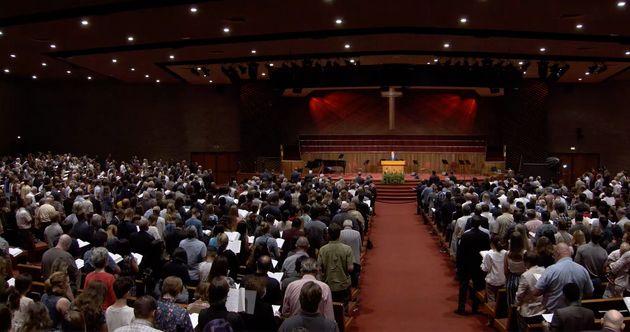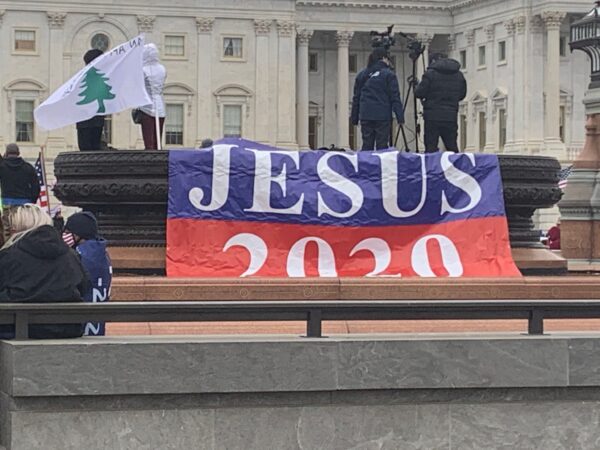Why?
There are a few issues where many in the church have fallen short or at a minimum haven't communicated Jesus' message of love to all mankind no matter who they are or where they are from. Here are five of these issues and how, rightly or wrongly, the church is perceived.
In-Person Services
During COVID the sentiment that churches insisting on meeting indoors, in person and in mass, were selfish, uncaring, unloving, and belligerent.
Even though many churches gathered with masks and social distancing, it didn't help that there are just as many, if not more, gathered without masks or distancing and the announced the gatherings boldly on social media as if their meeting was a badge of spiritual pride. That caused all churches to be painted with the same brush of perceived reckless irresponsibility and disdain for the health of others.
The bottom line was that those we are trying to reach, those seeking the peace that comes from the love of God for them, care little for our desire to meet, our hunger for corporate worship, or our First Amendment rights. They weren't able to meet together either. They weren't able to visit family or friends or engage in traditional holiday gatherings, or birthday parties. They weren't able to spend time with elderly or sick relatives or friends. They weren't able to have funerals or memorials for loved ones.
So, what they saw with many churches who refused to follow guidance for slowing the spread of COVID is a group of people acting in such a way that callously puts others at risk. It looks to them as this being simply selfish and unloving. It is seen as putting the emotional or relational needs of Christians over the more than 1,000,000 lives lost in the U.S. alone, not to mention the one in five Americans who lost someone dear to them.
The results of one survey indicated that more than half of white evangelicals indicated that they would not take the COVID vaccine and that they didn't care about the health effects of their communities in their decision. They literally said they didn’t care.
In a strange cultural twist, it is was the unchurched saying that we value the quality of life over the sanctity of life. In their minds, we, the Church, do have not love our neighbor. Specifically, we have not loved them.
Conspiracy Theories
The embrace of conspiracy theories like QAnon by many Christians, mostly evangelical ones, put them firmly on the fringe in the minds of many people.
What is alarming is the degree by which conspiracy theories like those QAnon spreads have taken hold in Christian circles.
It’s some bizarre stuff:
- 5G radio waves are used for mind control.
- George Floyd’s murder is a hoax.
- Bill Gates is related to the devil; face masks can kill you; the germ theory isn’t real.
- There is a ring of pedophiles made up of deep state leaders.
(Read my blog post ”Why QAnon Is Dangerous To The Church’s Witness”).
To those who don't believe, to non-Christians, it makes Christianity as a whole seem not just extreme, but on the fringe, and even weirder than it already was to their thinking.
Christian Nationalism
The storming of the U.S. Capitol on January 6, 2021, by people carrying the Christian flag, signs about Jesus and faith and a Christian America – even holding a prayer service once the rioters got inside will forever be etched in the minds of all Americans Christians and especially non-Christians and the unchurched.
It’s all about Christianity being identified with hate, violence, and insurrection and forcing a Christian cultural and, in their minds, political agenda onto the world through terror.
In their minds, there're no different than the people who flew planes into the Twin Towers on 9/11 as retribution against Islam. Only this was retribution against Christianity. To their thinking, it’s all the same terrorism in the name of religion. (Read my post “Is The United States A Christian Nation Or A Nation Of Christians? There’s An Important Difference”)
Many Christians, white evangelicals in particular, supported all things Trump. The unchurched, non-Christian didn’t care about the importance of conservatives in Supreme Court appointments, laws about freedom of religion, or the question of abortion. All they saw were Christians fawning over a man to the point of seeming idolatry—a man who even his most ardent supporters would admit is a deeply immoral man. From their perspective, they cared about power more than purity. They would eagerly condemn sin in their lives – such as homosexuality, adultery, and pornography – but embrace and overlook lying, sexual immorality, multiple divorces, ego, and immaturity in Trump. In the estimation of non-Christians, Christian support of Trump was hypocrisy. It seriously impacted the church's moral authority because it threw what mattered morally out the window in return for political gain.
Silence on Social Justice
The unchurched and non-Christian saw the often-muted response to the death of George Floyd, and other African American men and women, and other tragic events related to race, racism, and social injustice as wildly insufficient.
Their verdict was that many Christians were silent on the greatest moral issue of the day. Instead of a clear stand, all they felt they heard from us were arguments about critical race theory, the denial of institutional racism, and the condemnation of violence and looting in the streets. Which, to them, was at best culturally tone-deaf and at worst exhibiting racism in the church.
Why This Matters
The world the church is trying to reach believes that we don’t care about them. They believe we are certifiably crazy and irrational—not because of our doctrine, but because of what we believe off the internet and from conservative politicians and conspiracy theorists. They believe that the church is as violent as any terrorist group, that the church is a bunch of racist hypocrites.
That’s a problem. Those are assessments about the church's character. Those are assessments about how the church matches up to the Jesus we proclaim. Those are assessments about the church’s morality.
It's Not All Bad News
The good news is that a lot of local churches have gained ground with the unchurched in the past several years. Christianity, as a whole, might have had some tough sledding in the court of public opinion, but many local churches earned respect and admiration. The church that I pastor and the churches that many of my friends pastor are examples of these churches.
From the perspective of the unchurched, these churches gained points for speaking out against racism and taking time to pray and teach about it. They debunked conspiracy theories. They spoke out against the violence at the Capitol and the many insidious elements of extreme Christian Nationalism. And they walked through politics in a way that made clear that they were Christians first, and Democrats or Republicans second.
Let's be real. This is not the greatest moment in terms of perception and public relations for the church. And we need to realize that the mission is going to be much, much more difficult as a result.


 RSS Feed
RSS Feed